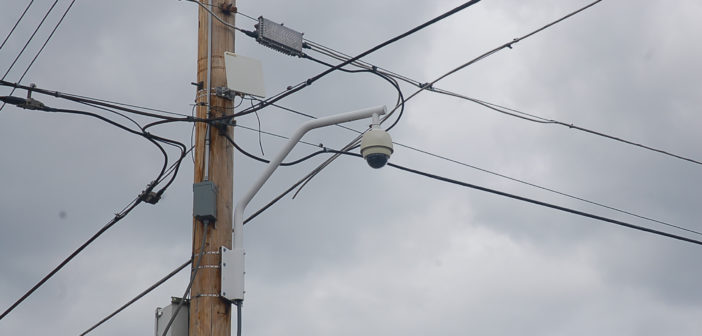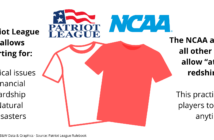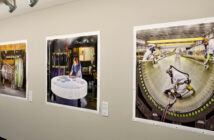Peter Crownfield, a South Side resident of 15 years, questioned the use of surveillance camera systems at a Bethlehem city council meeting.
Crownfield wanted to know more about policy — who would have access to the footage and what would they use it for?
The council left him without an answer.
Crownfield didn’t think the high cost of the cameras was worth it. Although security cameras can help solve crime, he said there isn’t enough evidence to show cameras reduce crime.
The Lehigh University Police Department has roughly 170 surveillance cameras that are always active and watch students, staff and Bethlehem residents both on and off campus.
LUPD officer Christopher Houtz said the project of adding surveillance cameras to the Lehigh campus and nearby Bethlehem community was initiated about 10 years ago.
Lehigh has a federation with the city Bethlehem for the surveillance camera project, meaning the city pays for some of Lehigh’s off-campus cameras and LUPD and BPD can exchange camera footage. Houtz said this makes it easier for both police departments because they don’t have to call each other every time they need to look at one anothers’ surveillance footage.
“Both of our departments having access to that information is vital,” Houtz said.
Houtz said the police departments determined the locations of the cameras at the beginning of the project and considered various factors in their placement. They are located where incidents are likely to occur and where there are high volumes of pedestrian and vehicular traffic.
“The entire purpose of the cameras is safety, whether they’re Lehigh-related or non-Lehigh related incidents,” Houtz said.
He said the surveillance cameras, which are active at all times, and the department’s drone have been mostly — but not 100 percent — successful in solving and reducing crimes.
Houtz said LUPD’s drone is only used in special cases for policing purposes. For example, the drone was used last summer when there was a shooter in the woods behind Sayre Park. The drone allowed the police to identify witnesses of the shooting.
LUPD receives many requests to look into surveillance camera footage. Houtz said a person may ask to see footage if, for example, their car is backed into off campus, but they need to file a police report before LUPD can look into the issue.
To ensure the safety of the community, Houtz said surveillance cameras need to be implemented in many places. They’re found throughout Allentown and in institutions like hospitals and airports. He said he is unsure why some people think cameras are an invasion of privacy when their purpose is safety.
Community members like Crownfield feel surveillance cameras don’t benefit the residents who are being watched.
“Surveillance tends to have a suppressing effect on free speech,” he said.
Crownfield said people are less likely to act on their right to free speech or participate in protests if they’re being watched. He said police departments should be more transparent about how camera footage is used.
Some Lehigh students don’t particularly like the idea of the cameras but recognize their value.
“My gut instinct is that I’d rather have less cameras, but I wouldn’t want none,” Michael Talusan, ’20, said.
Bethany Chen, ’20, said she supports Lehigh and Bethlehem’s federation and the fact that they can share surveillance footage to help solve crimes.






Comment policy
Comments posted to The Brown and White website are reviewed by a moderator before being approved. Incendiary speech or harassing language, including comments targeted at individuals, may be deemed unacceptable and not published. Spam and other soliciting will also be declined.
The Brown and White also reserves the right to not publish entirely anonymous comments.
2 Comments
Sure surveillance camera is for security and has proven useful in many cases but in some cases they have also known to invade privacy. The least that can happen is to put up a sign that the area is under surveillance.
Crownfield said people are less likely to act on their right to free speech or participate in protests if they’re being watched. He said police departments should be more transparent about how camera footage is used.